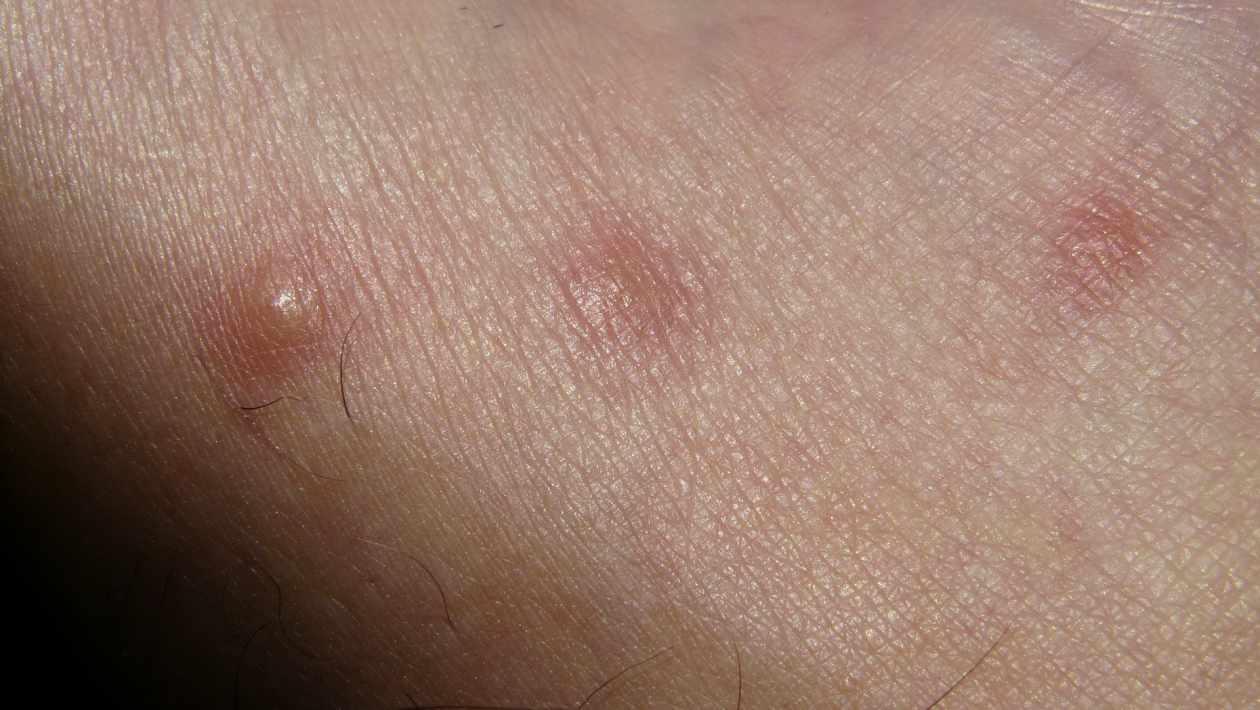The short answer to the question “Can dust mites bite?” is no, they can’t. Dust mites do not bite or sting humans, and it is also a myth to say that dust mites actually live on humans. While other members of the mite family do bite, it isn’t the case for common house dust mites.
That said, dust mites are known as asthma and allergy triggers, which can cause skin rashes and allergic reactions. In this blog post, we’ll take a closer look at dust mites and the allergies they exacerbate. In addition, we will look at the symptoms and treatment options for dust mite allergies.
What Are Dust Mites?
Dust mites are tiny, translucent organisms typically around 0.2mm to 0.3mm in length. They feed on the dead skin of humans and other animals and are commonly found in houses due to their humidity.
Dust mites reside in fabrics such as mattresses and carpets and are more common in places not frequently cleaned. The most common types of dust mites are Dermatophagoides farinae and Dermatophagoides pteronyssinus.
What Causes A Dust Mite Allergy?
As noted above, dust mites don’t actually bite humans. However, they can cause allergic reactions. A portion of the dust in our homes is made up of decomposing dust mites and their feces, which can trigger allergies and asthma.
In Australia, approximately 45% of the population suffers from allergies. Of these people, around 80% are allergic to dust mites. When these people breathe in the ‘dust’ (basically decaying bodies and feces), our immune system kicks in. This is what ultimately triggers allergic symptoms.
What Are the Symptoms?
Exposure to dust mites can cause a wide range of symptoms, which are typically mild but can also interfere with our quality of life. Symptoms are generally worse with increased exposure to dust mites. Serious allergic reactions do occur and can be dangerous.
Common symptoms include:
- Patchy areas on the skin with red bumps
- Itchy skin
- Red or watery eyes
- Frequent sneezing
- Coughing
- Congestion
- Runny nose
- Shortness of breath
- Tightness in chest
If you notice any of these symptoms, it is advised to schedule an appointment with a medical professional.
How to Treat a Dust Mite Allergy
If symptoms persist, there are available medications that can be prescribed. For example, antihistamines and corticosteroid nasal sprays are both options to treat a dust mite allergy. Your doctor will prescribe the best medication to treat your symptoms.
To prevent dust mite allergies, it is beneficial to clean your house regularly. This includes vacuuming your carpet and washing your bedding materials frequently.
Click here to lo learn more about alleviating allergies of dust mites.
Can Dust Mites Bite? No, But They Can Trigger Allergies
Dust mites are a common household pest that can trigger allergic reactions. To reduce your exposure to dust mites, it is advisable to keep your house clean, clutter-free, and to reduce the humidity as much as possible.
Did you like this article on “can dust mites bite you?” and want to learn more? If so, be sure to check out our other informative articles on the rest of our blog.





